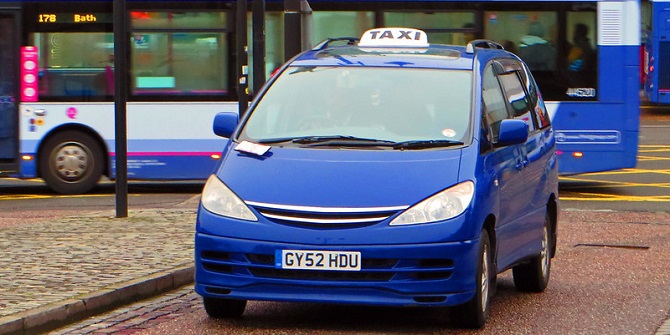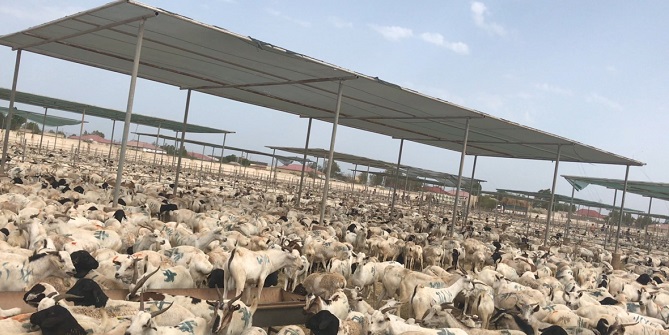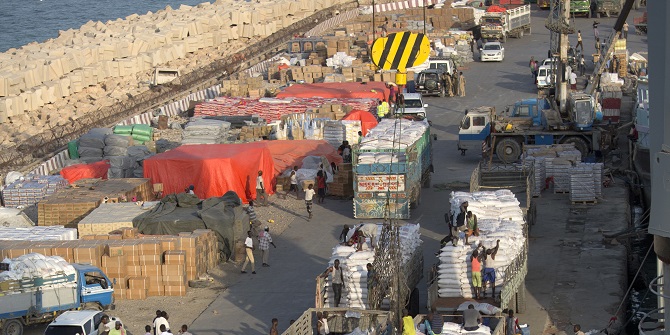
We are just over 14 weeks into the lockdown in the UK. The country is slowly re-opening although the first localised secondary lockdown has just taken place, in Leicester. More are expected as is the case in other parts of the world.
This blog post provides an update on the economic impact of COVID-19 amongst the Somali community in the UK, drawing on insights gained in one city, Bristol. In particular, it highlights the importance of food banks and community-level support that provided a crucial buffer before government support materialised, but that also reflects underling food insecurity in the UK. The post also suggests that an important employment sector for Somalis in the city, taxi driving, which has been severely impacted has in part been replaced by a rise in the delivery sector. The post discusses the difficulty in obtaining information and drawing out wider trends in the current context but raises concerns for food insecurity in the UK and in Somalia looking forward.
This brief follows previous COVID-related posts from the CRP Somalia programme, the first of which outlined issues for the Somali diaspora and the potential impact on remittances, and which was followed by emerging economic repercussions in Somaliland and Puntland. The purpose of this note is to bring attention back to the diaspora context. This perspective has been developed in Bristol, my home town, and where I conducted fieldwork for my PhD several years ago, and which has a significant Somali population. One of the themes of my thesis involved collapsing the distinctions between the Global North and the Global South; notions of poverty and development are as relevant to the UK (and the West) as they are to Africa.
The UK has the largest Somali diaspora population in Europe, with an older population identified with the merchant navy and the old port centres of London, Liverpool and Cardiff, as well as a wide variety of populations that have arrived in different periods over the last 30 years. A number of towns and cities having a distinctly Somali character; the history of the Somali population in Bristol is nicely captured in a local museum in the central harbour area; Bristol is commonly on the campaign itinerary of aspiring or successful Somali politicians during election time.
Food banks and financial support
The Somali Resource Centre (SRC) was set up just over ten years ago, in Bristol, to provide a range of support services for the local Somali population, in response to a large influx of people, particularly from Europe, who were settled in an inner city area with no previous history of immigrant settlement. The SRC was set up on the basis that it would be inclusive of all Somali identity groups where this was not always the case with other Somali organisations (as is also the case with NGOs in Somalia). It has been extremely successful in maintaining this open and inclusive identity and works closely with a local mosque, set up with considerable financial support from local Somalis.
Prior to the COVID-19 outbreak the SRC primarily provided advice and guidance to those unfamiliar with navigating the bureaucratic workings of a modern-day state; dealing with utility bills (and the consequences of accidental non or delayed payment) and accessing welfare entitlements, particularly where an online capacity is so important. Helping clients who faced discrimination and abuse, which requires working with the police and other services was another important part of their work. Women, involved in the office cleaning sector, on zero hours contracts, often came for help where they were being exploited by unscrupulous companies who do not pay on time or at all. The majority of the SRC’s clients are relative newcomers to the UK, having arrived within the last 2 years, who are not yet familiar with bureaucratic systems and do not have the social networks to support them.
The outbreak of COVID-19 has had a dramatic effect on the SRC’s activities. Whereas clients mainly came into the office to seek advice and assistance, a remote system of support had to be set up immediately. The demand for assistance intensified as both health and economic effects started to bite; advice on obtaining financial support was provided, where this had moved completed online with public offices closed, as well as health advice in appropriate cultural formats. The SRC joined forces with other local groups to create a COVID-19 task force.
One of the more visible activities has been the supply of food to local populations. Soon after the start of COVID-19 the SRC/COVID-19 taskforce created a WhatsApp group, which quickly gained over 100 members. They raised over £1,000 GBP and many of the members became volunteers, helping to deliver food parcels. The SRC also obtained additional public funds and has been supplying food packages to over 150 families. Recipients of this included ill and isolating families, as well as those where jobs had been lost and who had few other options. While the vast majority of the SRC’s clients are Somali, local residents also pointed out other (non-Somali) families that were struggling financially and these were also supplied with food by the SRC. A group of local Somali women who run a local kitchen clubbed together and provided 200 hot meals to NHS workers in order to express their appreciation.
Easton CE – Church of England – Academy, a primary school located in a neighbouring area of Bristol, estimates that 60-70% of its pupils are from the local Somali community. Following the COVID-19 outbreak, the material needs of its families increased dramatically. The school started a hardship fund and raised over £8,000 through its wider church networks. This fund provided £50 vouchers to families in need, as well as food parcels along with a local charity-café. Approximately 10% of the pupil population were receiving this support where there was no equivalent support being provided pre-COVID.
While state support mechanisms have been crucial and of an enormous scale in the UK, an army of charities and support groups have supplemented this state-level intervention throughout the country since the pandemic began. More worryingly for the weeks and months ahead is the fact that food poverty associated with low wages, precarious employment and cuts or changes to social welfare has been worsening for many years, following years of ‘austerity’; in 2018, the FAO estimated that 2.2m people in the UK were considered severely food insecure. The nature of a forthcoming global recession will further test these figures, with the UK in a particular conundrum given the additional impact of Brexit. These factors provide the context for future remittances to Somalia.
From mid-June however, numbers of people requesting financial support from the school decreased substantially, as different forms of government support started to arrive; one of the difficulties for affected populations throughout the country is the several week wait to receive income support/universal credit and self-employment related COVID-19 support.
Taxi driving and delivery work
Another unexpected dimension of the Somali predicament is the taxi sector. Taxi driving is thought to be the single largest sector for the employment of Somali men, in Bristol, and probably in the UK. Taxi firms report business down by 80-90% over the last 3 months. The local company that I sometimes use, who employ many Somali drivers, explained that the majority of their work comes from hospital runs (for staff), airport runs and trips between the train and bus stations and local accommodation, all of which were badly affected (while hospitals were preparing for COVID-19 many other routine activities were reduced or cancelled).
However, talking to taxi drivers, it emerged that many have been able to find employment in the delivery sector, as people have been forced to shop online. This has undoubtedly offered some respite for many families, however some taxi drivers said they could not commit to the long shifts required in this sector as they had to do their share of childcare, where normal taxi driving offers great flexibility.
Increased costs of getting online
Another characteristic of the pandemic is that many families in the Somali diaspora are incurring additional costs, in order to ensure that their children can continue their education online. Laptops and appropriate smart phones are being purchased, reliable wi-fi is required if it was not already available at home. Easton CE Academy has been lending out its unused laptops to any family who needs it, where home finances are not sufficient.
Finding and interpreting information
Obtaining reliable and representative information on COVID-19 impacts and coping strategies, locally, as well as for remittances has been difficult. I was particularly interested to find out if people’s social networks were being increasingly called upon to help relatives in need, whether within the wider diaspora or in Somalia; this interest emanated from work I was involved in during the Somalia famine, in 2011, when ‘social connectedness’ was found to be a critical factor for survival in extremis.
To date, this practice has not been evident; when inquiring it has also been the case that Somalis themselves have become a bit more disconnected from each other, in the city, as they are not out and about on school runs and in teashops where information is exchanged, and information about sharing resources within extended family networks is sensitive. The impact of the last 3 months on remittance levels is also extremely difficult to assess; people have been shifting to online platforms and Ramadan and Eid took place in May/June, when social obligations to send were still strong. To add to the confusion, one of the smaller, online providers, whose business was benefiting from the shift away from physical cash and visits to remittance agents, whose head office is in Bristol, is facing a new problem as their partner bank, in Bahrain, is closing down this activity.They therefore may be forced to close down themselves. Although there are other options this is a further disruption and potentially reverses government interest in moving remittances to online systems.
Conclusions
Understanding vulnerability to food insecurity and poverty is a common feature of early warning systems and aid programming in Somalia and the Global South. It is also relevant to the UK (and USA). Formal and informal social safety nets have been scaled up in the UK, but the increased use of food banks and increasing food insecurity preceded COVID-19. Somalis, like other migrant populations, will pro-actively seek out different forms of support and different forms of employment, as this piece illustrates. However, at this point in time, increasing poverty in the UK may be mirrored in Somalia, where vulnerability to acute crises is much more severe.
Many thanks to Toria Moore, Abdullahi Farah and Khalif Abdirahman for their contributions.
Note: The CRP blogs gives the views of the author, not the position of the Conflict Research Programme, the London School of Economics and Political Science, or the UK Government.






2 Comments